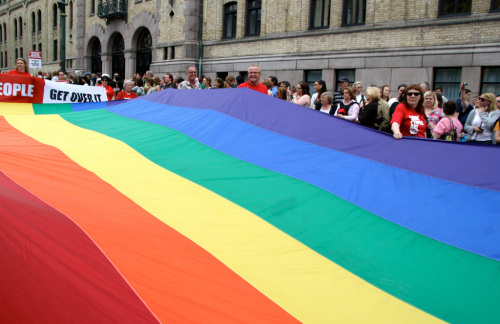It is arguably the best time to be gay. Countries around the world are legislating for gay rights, populations are more welcoming to LGBT+ neighbours and even the Pope has said, “who am I to judge?”
That’s not to say every part of the world is LGBT-friendly, though. There are still parts of the globe that are very hostile indeed.Draconian new laws in Uganda, Russia and Kyrgyzstan put more pressure on LGBT+ residents to conform, and violence against them is often supported by the state.
Other countries around the world are taking concerted steps to improve conditions, offering marriage equality, flexible gender categories and protection from discrimination. These countries may not be able to boast true equality, but they are leading the way in promoting acceptance and quashing hatred.
There’s a broad spectrum when is comes to the legal rights, public perception and everyday freedoms offered to LGBT+ expats. In some countries being a foreigner may gain you more freedom than the locals enjoy. Other nations will see you as attempting to ‘corrupt’ their traditions.
It would be a tragedy to ask any expat to hide their true selves, but in some parts of the world it may be prudent to exercise discretion to avoid unwanted grief. Before moving anywhere, it’s important to research your destination and see if it matches your lifestyle.
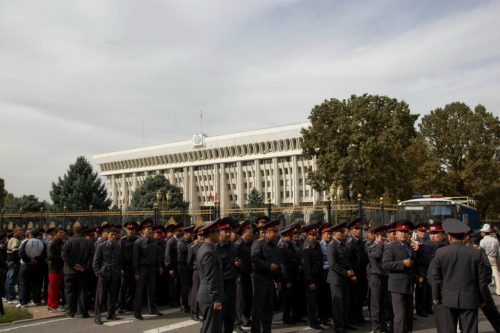
Inspired by Russia’s tough legislation, Kyrgyzstan has seen violent protests from both sides regarding a bill that would curb LGBT+ rights in the country.
Kyrgyzstan took a ‘don’t ask, don’t tell’ attitude toward sexuality and gender identity; whilst being different was never illegal, the law never offered protection against discrimination. Now, a bill progressing through the parliament would severely limit LGBT+ life. According to Human Rights First, the law would outlaw “LGBT organizations, shutter gay clubs, and most notably, could result in one-year prison sentences for those found guilty of propagating non-traditional sexual relations.”
The legislation follows a wave of anti-LGBT+ violence and a government crackdown on human rights groups. The outlawing of ‘non-traditional sexual relations’ means the Kyrgyz laws are even tougher than the Russian legislation that inspired them.
This is a concern as Kyrgyzstan is one of the more open and democratic countries in central Asia. If the country’s neighbours follow this example LGBT+ life across the continent could become much harder.
According to Human Rights Watch LGBT+ residents in Kyrgyzstan have long suffered “violence, rape, psychological abuse, confinement and stigmatization”. But now the hatred is boiling over into public life, a Ministry of the Interior official proudly proclaimed he would beat his son if he were gay. Baktybek Kalmamatov, an MP announced, “Who are they (LGBTQIA+) to be protected? They are damaging me, my children. I loathe them, they should not eat in the same places we eat at, sit where we rest… Government, I call upon you to take measures! If needed – identify them as sick!”
Things in Kyrgyzstan look set to get worse throughout 2016.
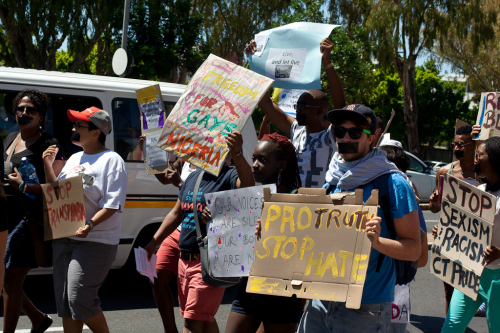
Homosexuality has been illegal in Nigeria since 1901 and new legislation has introduced harsh penalties for same-sex couples.
The 2013 Same-Sex Marriage Bill outlaws gay marriage, prohibits displays of affection between same-sex couples and mandates 14-year prison terms for anyone in a same-sex relationship. The bill also sets out punishments for people found guilty of ‘associating’ with anyone identifying as LGBT+.
These measures, along with the outlawing of LGBT+ advocacy groups, are intended to isolate, alienate and persecute anyone suspected of not being heterosexual or cisgender.
The legislation is a tragically cynical attempt to scapegoat one group for the country’s economic and HIV/AIDS woes of recent years, sparking a witch-hunt akin to Jewish persecution in Nazi Germany. Oppression of LGBT+ Nigerians is even more brutal in the north of the country, where Boko Haram enforces Sharia law, lashing or stoning those found ‘guilty’ of same-sex sexual activity.
Sadly these ignorant attitudes are pretty widespread. A 2015 Pew Global Attitudes Project survey showed that 87% of Nigerians believed that homosexuality was not to be tolerated. The survey also listed only 30% of the population believed LGBT+ Nigerians should have any right to education, healthcare, and housing.
Sadly this situation is unlikely to improve any time soon. Newspapers have launched smear campaigns against public figures they believe to be LGBT+ and churches and community centres have been attacked for perceived support of LGBT+ rights. The largest political parties are overtly hostile toward LGBT+ rights; even smaller parties refuse to oppose them.
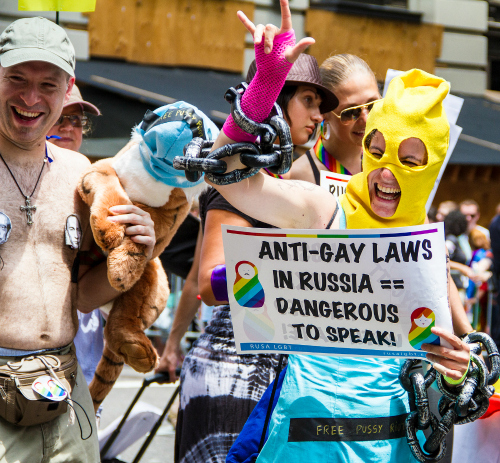
Russia has become famous for its intolerance toward LGBT+ citizens and this has been getting worse. A 2013 poll showed that 84% of Russians believe homosexuality should not be accepted by society, 22% said they should be forced to undergo treatment, and a shocking 5% called for homosexuals to be ‘liquidated’.
Despite this hostility, homosexuality is not illegal in Russia, trans* Russians can apply to change their gender on documents, and the age of consent is equal for all. Russian law does, however, outlaw ‘homosexual propaganda’.
This catch-all term ostensibly limits the discussion of homosexuality with minors and discussion of LGBT+ rights in public forums, but is has also been used to justify a host of arrests, beatings and oppressions. It’s not unheard of for gay tourists to be arrested and questioned, or for police to turn a blind eye to violent assaults on LGBT+ Russians.
Right-wing gangs have used the legislation to legitimize hunting down LGBT+ people, using blackmail and threats of violence, often with the support of police. LGBT+ support groups have similarly been targeted by vigilantes and seen their activities restricted by government orders.
Revealing your sexual orientation in Russia can cost you your job, with no anti-discrimination laws in place to offer protection. Even displaying the pride flag can result in arrest.
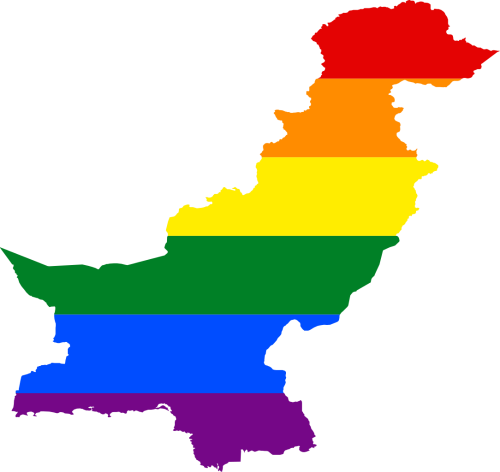
Homosexuality in Pakistan has been illegal since 1860, and can be punished with up to 10 years’ imprisonment. Enforcement varies across the country and according to class.
Wealthy middle and upper class gay and bisexual Pakistanis can enjoy a vibrant nightlife and dating scene in the larger cities. Largely this is thanks to police corruption, with bribes paid by club owners and party hosts to keep the law out of their hair. Individuals can expect to be arrested and harassed, although peace and quiet can be bought.
Blackmail by police is fairly common in smaller towns and rural areas, with officers expecting cash in return for not arresting or naming and shaming suspected homosexuals.
Pakistani culture means it is not uncommon for public embraces, hand-holding, dancing or cheek kissing to be seen between same-sex friends. It’s rare, however, for same-sex couples to enjoy a warm reception, and 87% of Pakistanis polled believed that homosexuality was unacceptable.
Any political or advocacy group in Pakistan is required to respect ‘public morality’, meaning LGBT+ groups are almost non-existent. Online forums have been place for discussion, and bloggers have been the most outspoken of supporters, despite occasional persecution.
Pakistan is much more supportive of trans* citizens, traditionally accepting a ‘third gender’ known as ‘hijra’. Legal protections are lacking for gay or bi Pakistanis, but the trans* population are protected from discrimination and are permitted to change their gender.
The tribal regions of Pakistan, close to Afghanistan, are supposedly administered under the same laws. But local courts rely heavily on Sharia law and have been known to violently persecute the LGBT+ population. Whilst these governments has increased its influence in this area over recent years, the tribal areas should be avoided.
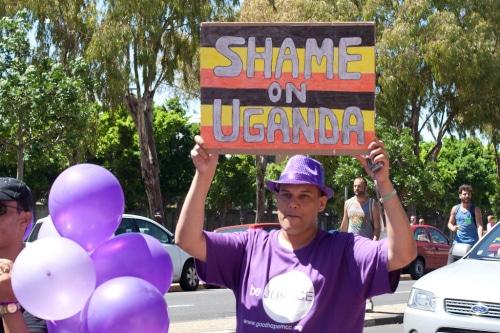
There are 38 countries in Africa where homosexuality is illegal, but Uganda is unusually aggressive in its persecution. In 2014 the country overturned a bill to punish homosexuality with death, but it is still common for the courts to dish out life sentences for homosexuality.
Violence is commonplace, as are vigilante executions. In 2009 a Ugandan newspaper printed tips to help the public identify homosexuals; in 2010 a newspaper printed the names, photographs and addresses of “Uganda’s Top Homos”. The 100 names ran next to a banner calling “Hang them”. The Ugandan media have blamed gays for everything from HIV/AIDS to Islamic terrorism and modern-day piracy.
The government have even used the supposed “undermining the national culture” and an excuse to ban NGOs and human rights groups from the country. Uganda is best avoided.
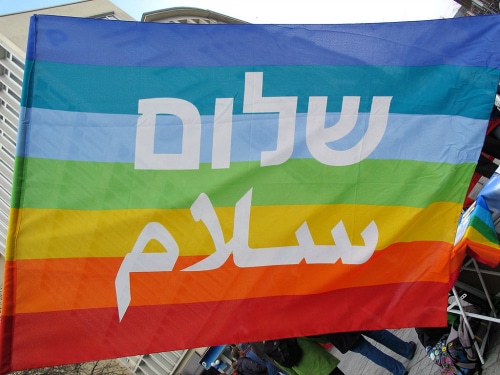
It’s a surprise to many to find a gay-friendly country in the heart of the Holy Land, but Israel really is an LGBT+ leader.
Israeli residents can enjoy equality in nearly every way, including IVF, adoption and recognition of civil partnerships. As yet the country only recognizes same-sex marriages from outside Israel, and whilst protecting from discrimination in employment and shopping, doesn’t offer protection from everyday hate speech.
That’s not to say that abuse is a regular occurrence. It’s rare to see violence directed toward LGBT+ people and open displays of affection are common in Tel Aviv and Haifa.
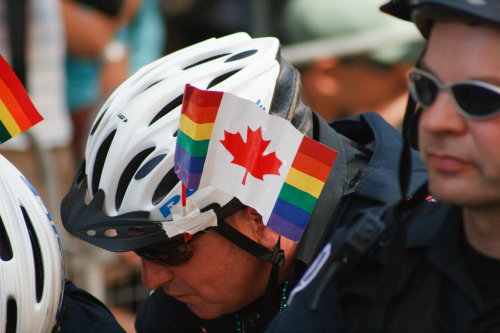
Famous as the politest nation on earth, Canada was one of the first countries to enact anti-discrimination laws and over 85% of Canada’s population can enjoy same-sex marriage .
The country’s famous healthcare system offers assistance for lesbians seeking IVF treatment and equal access to surrogacy. The national health service offers free gender reassignment surgery in all but one state.
Canada’s schools are the only place where the nation’s rainbow flag doesn’t wave proudly. Although plenty of educational establishments have active gay-straight alliance programmes, there is still an element of bullying that needs to be stamped out.
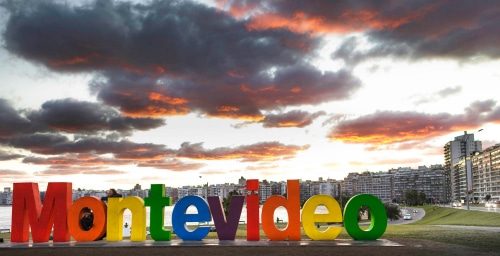
South America is often thought of as a conservative, Catholic continent, where tradition reigns supreme. But Uruguay is one of the world’s most forward-looking countries, decriminalizing homosexuality as early as 1934.
Uruguay has lead the way in LGBT+ rights in South America, ratifying civil unions in 2008, enacting full marriage equality in 2013, allowing trans* people to change their gender on documents since 2009. In the same year Uruguay allowed gay couples to adopt.
There isn’t much of a gay scene in Uruguay compared to the glitter and glamour of neighbouring Brazil, with most bars and clubs focused on the capital Montevideo. But gay and trans* residents report no discrimination and few ‘negative vibes’ even in rural areas.
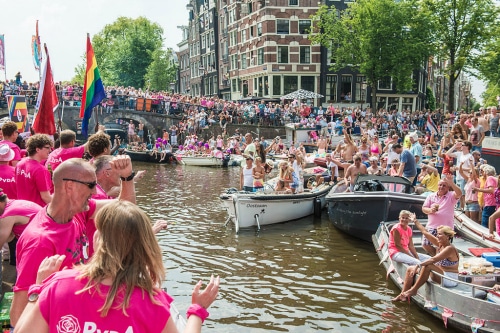
Same-sex sexual activity has been legal in the Netherlands since 1811 and the country has been one of the most outspoken advocates for gay rights throughout the 20th century. The country outlawed discrimination as early as 1993 and recognised same-sex relationships in 1998.
Over 90% of Dutch people supported same-sex marriage and in 2001 the Netherlands became the first country in the world to pass an equal marriage act into law. The act also granted equal adoption rights to same-sex couples.
Amsterdam especially has become a European hub of gay culture, and hosts hundreds of thousands of visitors for Pride parades, but the Netherlands as a whole is an LGBT+ haven.
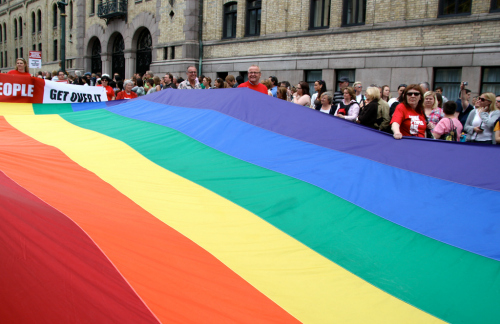
It seems a little unfair to lump an entire region of Northern Europe together, but the Finns, Danes, Swedes and Norwegians jointly extend the warmest welcome to LGBT+ expats.
Scandinavian countries have lead the way on most LGBT+ issues, Denmark decriminalized same-sex sexual activity as early as 1933. The Pride Parades of Copenhagen, Oslo and Stockholm frequently top polls as the biggest and best of the world’s pride parties.
Sweden, Denmark, Norway and Finland tend to top any poll of LGBT-friendly nations, occasionally swapping places but rarely giving way to any other nation. Their liberal attitudes mean that each country has instituted its own anti-discrimination laws, equal age of consent, right to same sex marriage, equal adoption rights and the right to openly serve in the military.
There are a few differences across Danish-administered territories. The Faroe Islands is yet to recognise same-sex marriage whilst Greenland does not yet allow residents to change their gender.
The open, welcoming Scandinavian nations offer the most forward-looking and friendly cultures for LGBT+ expats looking to make themselves at home.
Article by Andy Scofield, Expat Focus International Features Writer

